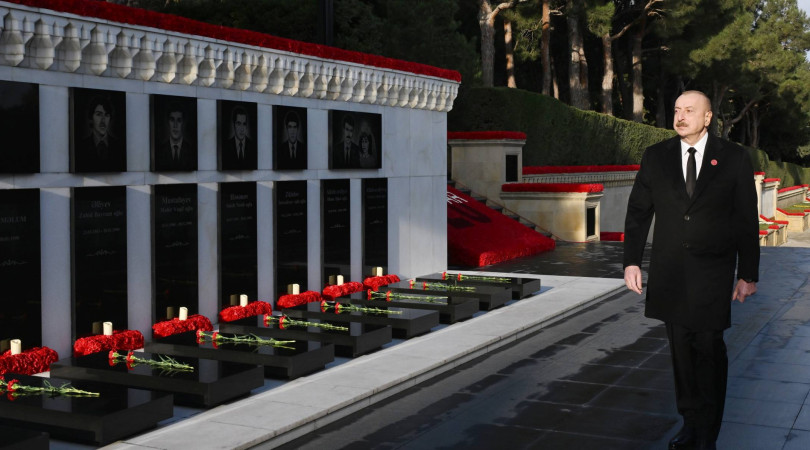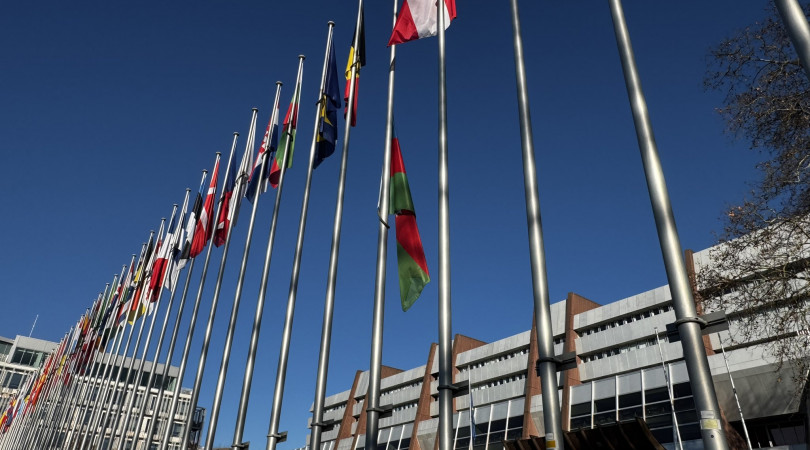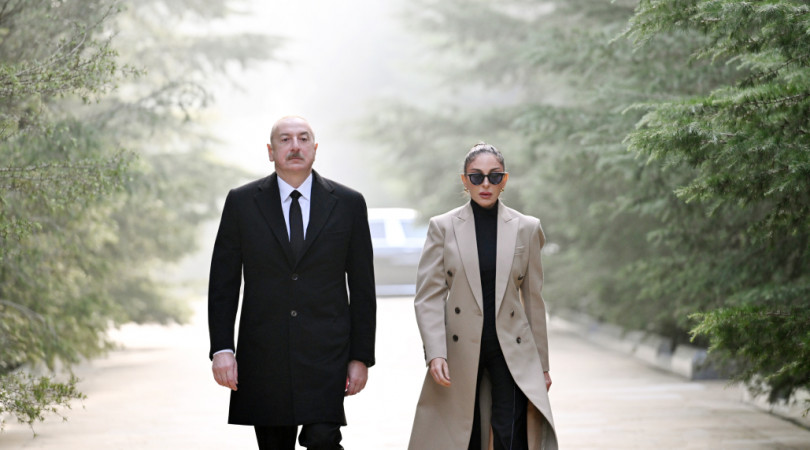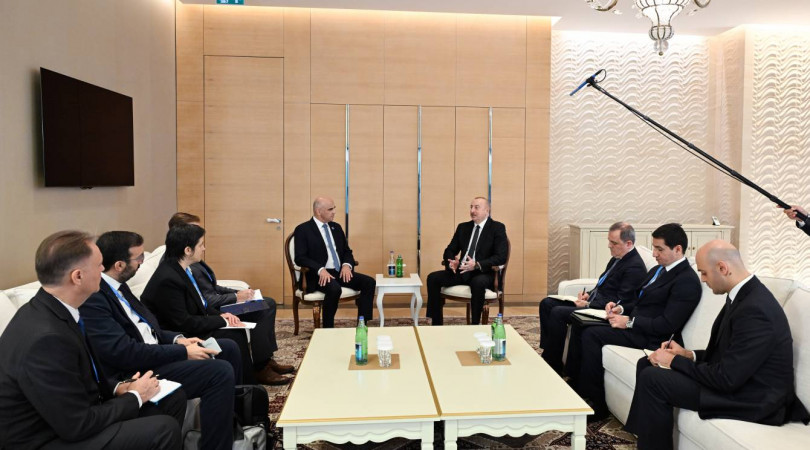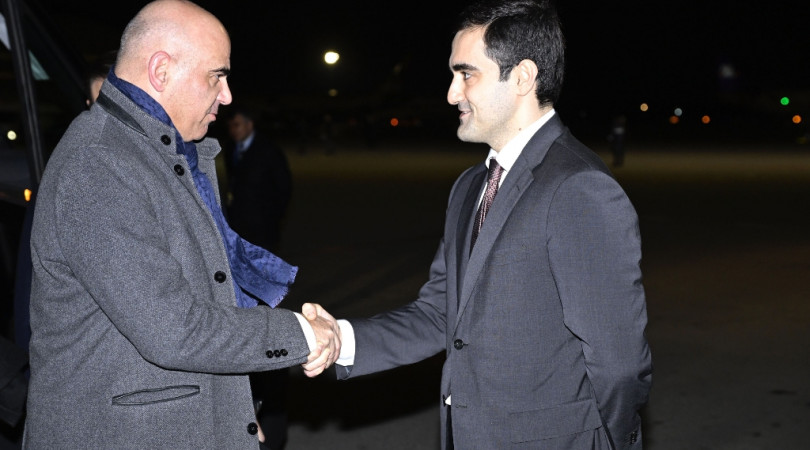Baku International Humanitarian Forum discusses the role of media in inter-civilizational dialogue
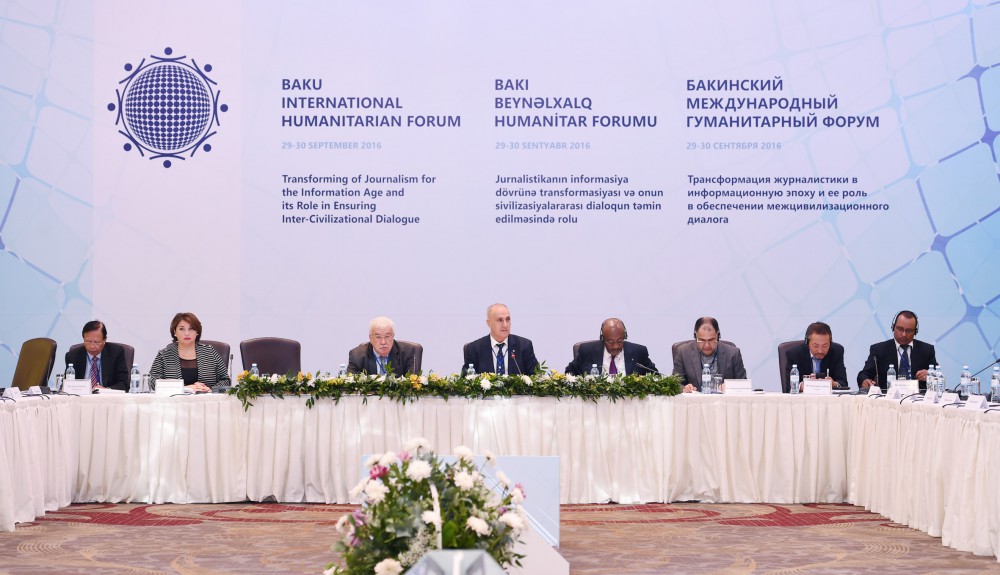
“Transforming of Journalism for the Information Age and its Role in Ensuring Inter-Civilizational Dialogue” round table has been held as part of the 5th Baku International Humanitarian Forum.
Organized by AZERTAC, the round table focused on the formation of alternative models of journalism in the information society, the role of modern journalism in ensuring intercultural, inter-faith and inter-civilizational dialogue, and the significance of virtual journalism and the role of social networks in the context of the challenges of modern society.
In his opening remarks, AZERTAC Director General Aslan Aslanov said: “The capital of Azerbaijan has hosted this Forum since 2011, which aims to build an authoritative international platform for world scientists and culture figures as well as acclaimed experts to discuss pressing global humanitarian challenges.” “In these two days, the capital of Azerbaijan traditionally turns into an "intellectual Davos" as it brings together many Nobel Prize winners, politicians and scientists,” he added.
Titled “The formation of alternative models of journalism in the information society”, the first panel session was moderated by First Deputy Director General of the Russian news agency TASS Mikhail Gusman. He thanked President Ilham Aliyev, the government of Azerbaijan and the Heydar Aliyev Foundation for “the excellent” organization of the Forum.
Mr. Gusman highlighted the use of technologies in modern journalism, as well as favourable opportunities for media development.
Speakers included Deputy Director General of UNESCO Engida Getachew, Chief of Office of the Rector of ADA University Shafag Mehraliyeva, Managing Director of IRNA News Agency Mohammad Khodadi, founder of Globalist international affairs magazine Yusof Hashim, Chief Executive Officer of Ethiopian Fana Broadcasting Corporate Woldu Baraki, and CEO of The Three B Limited Japan`s World Investors TV Kazuyasu Ishida.
The second panel meeting was called “The role of modern journalism in ensuring intercultural, inter-faith and inter-civilizational dialogue”. It was moderated by International Programs Assistant at Marquette University, USA, international relations expert Peter Tase. Speakers at this panel included President of Argentina`s Télam National News Agency Rodolfo Pousa, Director General of AZERTAC Aslan Aslanov, PR and Media Manager at Slovakian International Habitat for Humanity Ekaterina Bezgachina, former President of Croatia Ivo Josipovic, Associate Professor at International Journalism Department, Baku State University, Tarana Mahmudova, Head of Internet Studies Problems at the Institute of Information Technologies Rasim Mahmudov.
Aslan Aslanov said: “One of the major trends in today's world is globalization, which has left its mark on information and communication sector. Information flows transcend national borders, integrating into the global information space. Rapid development of communication systems and improvement of methods of use of outer space for the transmission of information drives information revolution.”
“We can talk of prospects for the development of information society only based on progress in the field of new information technologies. But we all remember that these processes were developing at a very slow speed at the beginning, and they sometimes were even ignored. Recent advances in the field of information and communication technologies contribute to the formation of entirely new economic, social and cultural relations in the lives of people, which can be described as a single concept of "global information society".
“The development of information and communication technologies brings about significant changes in the political life of society. For example, draft laws under the development can be put online for review of millions of people. On the other hand, every person receives an opportunity to address an unlimited audience and express his or her opinion regarding various issues, which is the principal innovation.”
He said: “Under these circumstances, traditional journalism has been experiencing a dramatic transformation. Technology as well as new devices are a driving force of this transformation. Although the benefits of the Internet are obvious, we face its negative aspects in our everyday life. Unfortunately, the Internet can serve as a tool for spreading materials of criminal organizations, recipes of explosives and poisonous substances, weapons, narcotics and psychotropic substances, methods of cracking electronic and other ciphers, and as a platform for terrorist recruitment.”
“Information infrastructure and its resources are becoming the arena of struggle of countries for global leadership, and individual and mass consciousness is becoming increasingly dependent on the activity of the mass media and communication. We should admit that today the issues of information security have become a major problem impeding the development of global information society.”
Mr Aslanov said: “All these developments are representing new challenges for journalism, which is transforming under the influence of technological progress. We have to co-exist and cooperate with social media on many occasions. However, we also compete with it. This is caused by the absence of perfect legal framework and an effective legal mechanism both at national and international levels. Given the global nature of the Internet, it is possible to cope with this problem only through international cooperation and concerted efforts.
The third panel meeting was called “The significance of virtual journalism and the role of social networks in the context of the challenges of modern society”. It was moderated by Special Correspondent of AZERTAC in Germany Vugar Seyidov. The panel meeting heard speeches from IT Director of Turkish Anadolu Agency Yakup Sivka, Principal at Cultural Diplomacy Associates, LLC, USA, Diana Altman, professor at Chile`s Andras Bello National University Marcos Belmor Borcoski Paes, deputy head of Editorial Board at Darakchi Publishing House, Uzbekistan, Rustamjon Jabborov, journalist at Egyptian "Rose el-Youssef" newspaper Ahmed Tarabeik, chair of the Department of Television and Radio Journalism at Baku State University Aynur Karimova, division head at the Institute of Information Technologies of Azerbaijan National Academy of Sciences Irada Alakbarova, and chair of the Department of Journalism at Baku Slavic University Shalala Hasanova.
The round table culminated with the discussion and adoption of the Declaration of the 5th Baku International Humanitarian Forum.

